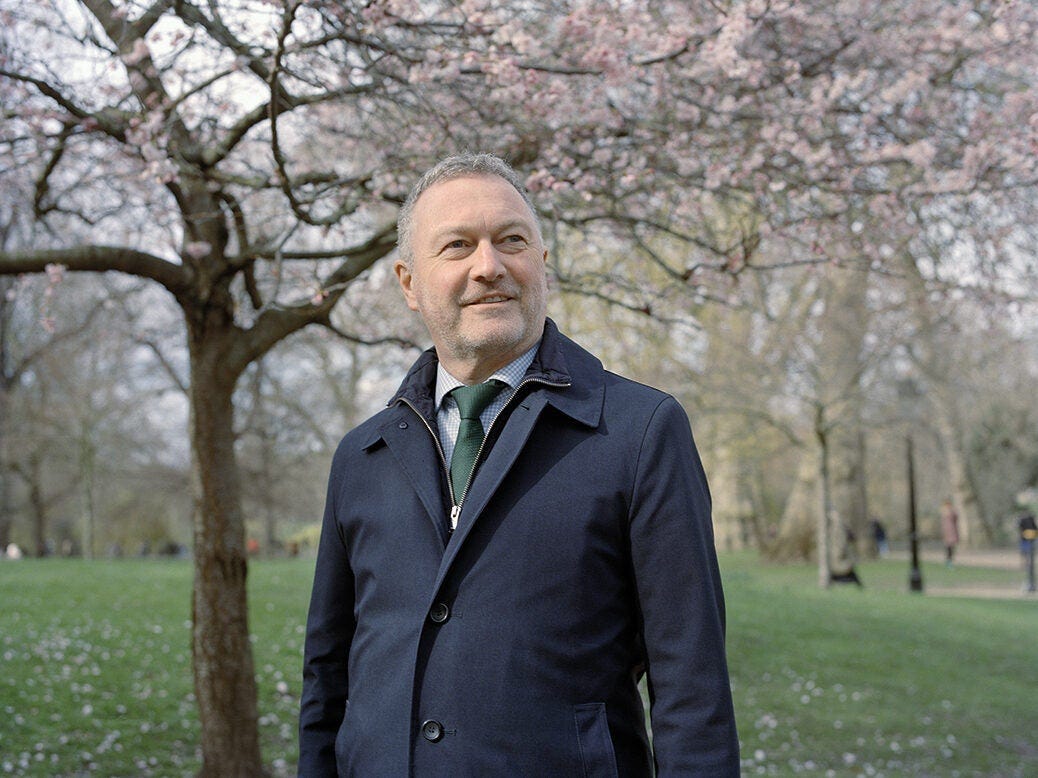Morning Call: Tories NIC Labour’s plan
Starmer is dictating UK politics – Jeremy Hunt taking his policies proves it.
Good morning. “It won’t make a difference – it’s madness.” That was how one Tory MP described the Budget to me. They are right: it did not change the political fundamentals. My thoughts below.
Then for our paid-tier subscribers: I interview Labour’s Steve Reed, the shadow environment secretary. We spoke about his relationship with Morgan McSweeney, why he is a social conservative, and why he slapped down Mark Drakeford, Labour’s leader in Wales. Then, Ben on the enduring importance of depleted disposable income to voter priorities.
You can read all that by clicking this button:
The Conservatives’ snatching of Labour’s plan to cut the non-dom tax status shows that Keir Starmer now conducts British politics. The drumbeat of power is heard outside the Leader’s Office. This is a government in opposition.
The telling sign was how Jeremy Hunt’s primary objective was causing trouble for Labour. The Tories threw the opposition a problem: how will you find the money that underwrote your retail offer (more MRI scanners and nurses) now that we have spent it on a National Insurance tax cut? I asked Labour’s spokesperson that question. The reply was simple: we stand by the commitments and we will find the money without raising taxes. In other words, the £1.2trn of state expenditure will be rejigged, shook, ironed out and refined until a few billion pounds are found.
That is perfectly reasonable. But it exposes a myth in politics right now: that the day-to-day announcements on tax-and-spend will fundamentally reshape the country. In other words, money for a few more MRI scanners is available whether or not it is raised through non-doms. It matters much more whether the Houthis shut down trade through the Suez Canal in the context of buying more MRI scanners than whether the government pockets a couple billion in tax.
Flick through the Office for Budget Responsibility’s report, published alongside the Budget, and you will read sentence after sentence decrying the uncertainty in the British economy. Introducing a vape tax to pay for cuts while failing to confront the implausible post-election spending reductions is a testament to the unseriousness with which the government is setting out its vision. It is political theatre, a dance for the cameras. As David Gauke, a former Treasury minister, writes in his column for us, “the spending plans confirmed by Hunt [yesterday] are a work of fiction”.
This is politically relevant because it means the Tories have little chance of turning the iceberg-hit economic ship around, and the public knows that. Look at who they trust more with the economy. Look at the fact that living standards will be worse on polling day than when Boris Johnson was elected. A £40-a-month tax cut will not compensate for overall tax rises. An alcohol duty freeze still means a pint costs more than £7 in London; £5m for village hall rejuvenation (yes, this was announced) is not a levelling-up agenda.
Will Labour do any better? The bar is low. The Tories are struggling so badly to tell a story or produce policies to win over voters that I don’t think Labour needs to offer a radical departure from the status quo. But that is a different matter to how it will govern.
Another thing the Labour spokesperson told me was that Labour stood by its commitment to reconfigure the way public finances are measured. Even if the newspapers confidently report that Labour will stick to a five-year debt reduction fiscal rule, I still think there is a good chance that time-frame will be extended to ten years. This makes sense: Starmer’s central message is that the country is in such crisis that a Labour government requires ten years – “a decade of national renewal” – to shift its direction. Few people know what the fiscal rules actually are. But wouldn’t the Conservatives paint Labour as the party of debt? Fine, make the time-frame shift a few months after the election.
In any case, I do not think Labour will lose much sleep over yesterday’s Budget. Hunt was trying to draw a divide with Labour over taxes. As I wrote yesterday, I think he went a long way to doing so. This will clearly be a central issue at the next election. But will it work? I doubt it.
Freddie’s picks
Come for Andrew’s fictional conversation between Sunak and Hunt; stay for the sharp political analysis.
Hannah Barnes explores the case against therapy in schools.
John Gray on narcotopias and what liberal societies can do about drugs.
Things are bleak, writes Martin Wolf, and Britain needs more than fiscal games (FT).
Steve Reed: “Farmers feel shafted by this government”
To understand the Labour Party today, you need to know what happened on Lambeth Council between 2002 and 2012. In this short period in south London’s political history, you will find the roots of the current Labour leadership’s victory-at-all-costs election strategy, and of its commitment to purge the party’s left.
It started in 2002. Steve Reed, who joined Labour at 16, became the party’s opposition leader on the council. He wanted to return to power and repair the damage, as he saw it, wrought by the “loony left”. He brought in a young party staffer called Morgan McSweeney, who was gaining a reputation as a shrewd, hard-headed campaigner. Together, the two built a strategy to win back control of the council in the 2006 election.
I met Reed, now Labour’s shadow environment secretary, in his Westminster office at Portcullis House. He wore a maroon tie and a centimetre of grey stubble. Rain slapped the window as he recalled: “Morgan was very interested in what we were doing in Lambeth; I was very interested in Morgan’s campaigning ability.”
Click through to the NS to read the rest, or MC subscribers can read in full in-email.
Keep reading with a 7-day free trial
Subscribe to Morning Call to keep reading this post and get 7 days of free access to the full post archives.








